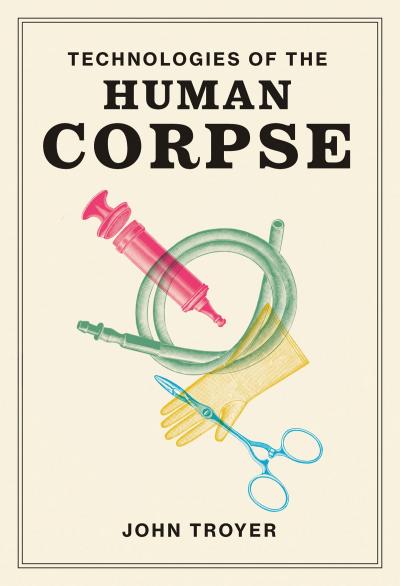New book from the MIT Press explores the relationship of the dead body with technology through history

Credit: MIT Press
By the Director for the Centre of Death Studies, a book about death which takes the reader on a journey through the history of ‘death-defying’ technologies, from nineteenth-century embalming machines to the modern medical machinery deployed expressly to keep human bodies from dying, blurring the boundary between alive and dead.
Death and the dead body have never been more alive in the public imagination–not least because the recent outbreak of the Coronavirus has led to soul-searching on a global scale.
In ‘Technologies of the Human Corpse’ (The MIT Press, April 2020), Director of the Centre for Death and Society John Troyer examines the relationship of the dead body with technology, both material and conceptual: the physical machines, political concepts, and sovereign institutions that humans use to classify, organize, repurpose, and transform the human corpse. Doing so, he asks readers to think about death, dying, and dead bodies in radically different ways.
###
Media Contact
Katie Stileman
[email protected]
44-077-375-07724
Original Source
https:/




